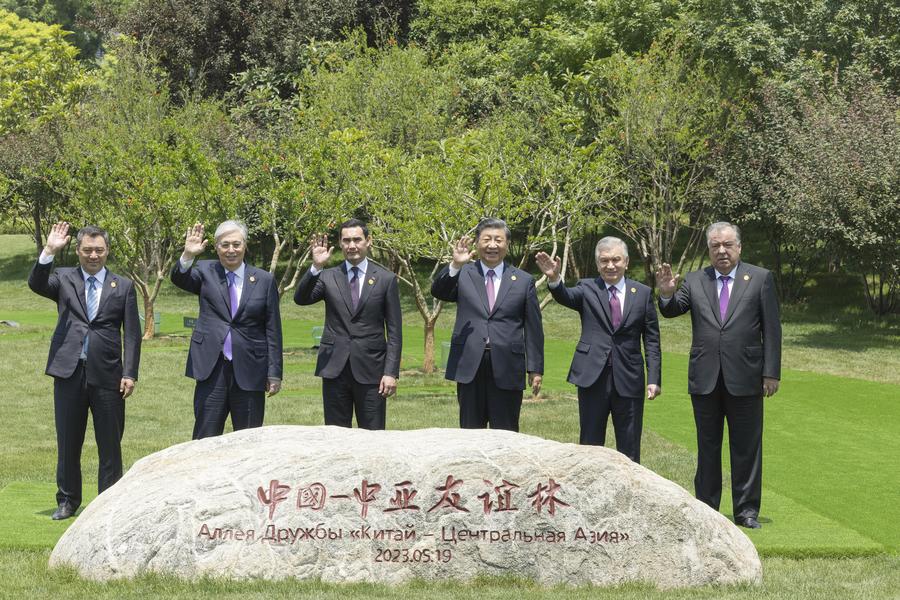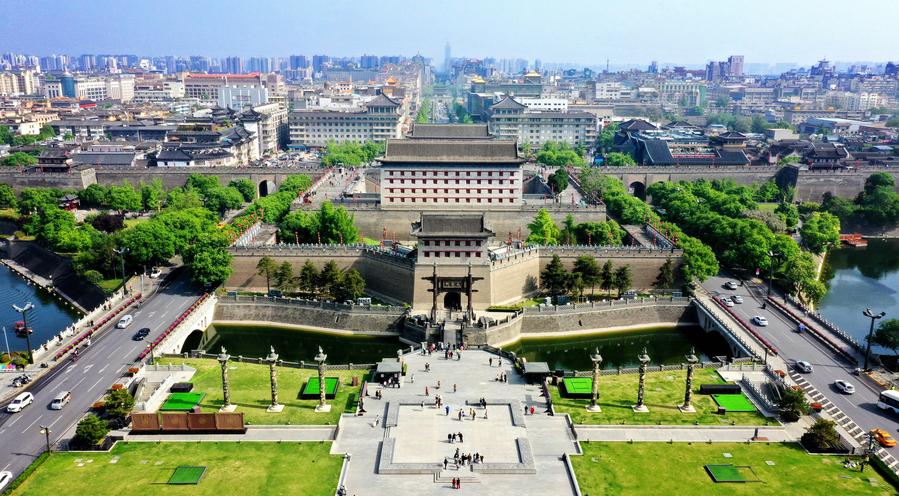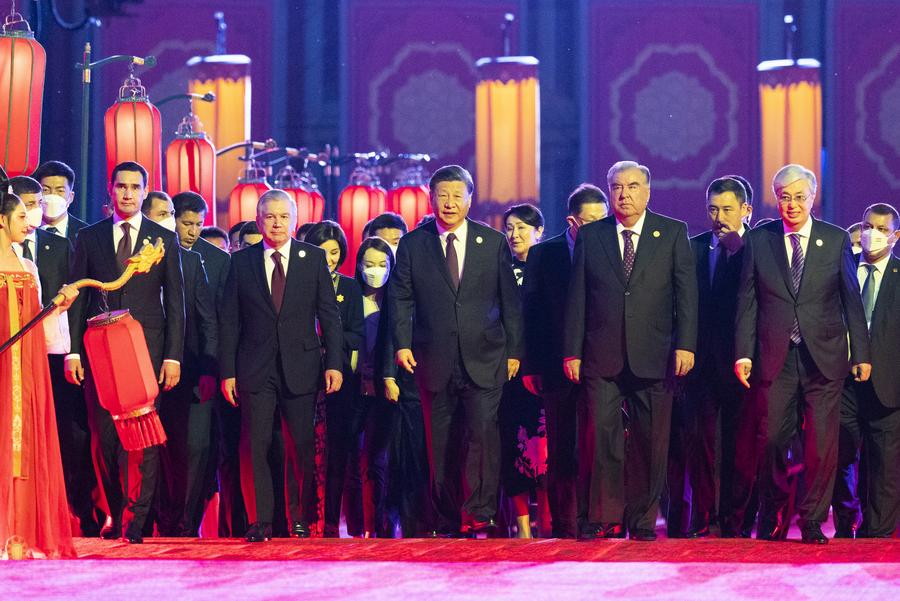Along ancient Silk Road, Xi cultivates new bonds with Central Asia


BEIJING -- In the shimmering early summer heat of Xi'an, China's longest-serving ancient capital, six pomegranate trees stand gracefully near the site of the inaugural China-Central Asia Summit held in May 2023, their branches bowing low with fruit.
Planted two years ago by President Xi Jinping and leaders of the five Central Asian nations, this vibrant grove stands as a vivid testament to the increasingly close and dynamic bond between China and Central Asia.
Building on past achievements, Xi and his Central Asia counterparts are scheduled to gather in Astana, Kazakhstan, later this month for a second summit, where they will weave tighter threads of trade, security and connectivity across the Eurasian heartland.

Forging New Paradigm
The 2023 Xi'an summit marked the first-ever meeting of heads of state under the China-Central Asia cooperation mechanism. In the city's time-honored embrace, they agreed to host the top-level gathering every two years alternately in China and Central Asia.
Last year, this mechanism was further institutionalized with the establishment of a secretariat in Xi'an, capital of Shaanxi, Xi's home province.
Xi places great importance on China's ties with the region. In his view, Central Asia pulses at a strategic crossroads, linking East and West, North and South.
"It is a foreign-policy priority for China to develop friendly cooperative relations with the Central Asian countries," Xi said during his first visit to Central Asia after becoming Chinese president in 2013.
Since then, he has traveled to the region eight times, deepening partnerships bilaterally as well as through platforms such as the Shanghai Cooperation Organization and the Conference on Interaction and Confidence-Building Measures in Asia.
Today, Central Asia stands as the only region in the world where every country is a strategic partner of China. These partnerships, Xi said, have forged a new path of good-neighborliness and win-win cooperation, creating a new paradigm for international relations.
A highlight of the Xi'an summit was the signing of the Xi'an Declaration, in which Xi and the presidents of the five Central Asian countries vowed to work together to build a closer China-Central Asia community with a shared future.
This pledge aligns with the core idea of what's known as Xiplomacy: building a community with a shared future for mankind. Notably, the vision has been fully implemented at the bilateral level in Central Asia.

Sheradil Baktygulov, director of the Institute of World Policy of Kyrgyzstan, said that the shared political will of Xi and the leaders of Central Asia is key to the sustained development of China-Central Asia cooperation.
"This cooperation not only strengthens bilateral ties, but also lays the foundation for a new model of multilateral collaboration in the Eurasian region," he added.
Xi's strong personal rapport with the leaders of Central Asia fuels these ties. At the Xi'an summit, Xi greeted Tajik President Emomali Rahmon as "my old friend." In talks with Xi, Uzbek President Shavkat Mirziyoyev referred to him as his "dear brother."
Kazakh President Kassym-Jomart Tokayev, also a seasoned sinologist, arrived in Xi'an on his 70th birthday. Xi told him, "On this special occasion, your visit speaks volumes about the strength of our bilateral ties and reaffirms your unique bond with China."
























